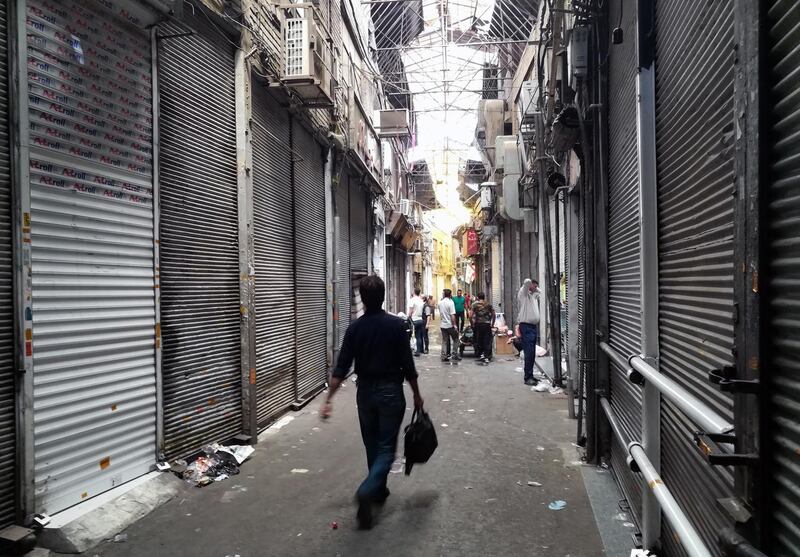Iranian President Hassan Rouhani has blamed the United States for waging “economic war” against his country, following ongoing anti-government protests across Iran. While the demonstrations are spurred by a collapsing currency and rising prices, overseas observers suggest that protests are being coordinated by hardliners in an effort to oust the reformist president.
In a televised speech on Tuesday, President Rouhani called for unity to maintain confidence in the face of the growing economic woes. "I assure you that if we can safeguard these two assets – hope and trust [of the people] – we can overcome all problems," Rouhani said.
His comments came the day after a strike at the Tehran's Grand Bazaar spurred further anti-government protests across the Islamic republic, including a gathering outside the parliament which police dispersed with tear gas.
__________
Read more:
Iranian rial tumbles to record lows as US sanctions loom
Re-imposition of US sanctions will dent Iran’s consumer sector
Iran’s economy to deteriorate following the re-imposition of US sanctions, BMI says
__________
The protesters primary grievance appears to be economic, with the rial dropping to a record low of 90,000 against the US dollar. Before US President Donald Trump withdrew from the nuclear deal in May, the dollar bought 65,000 rial, and at the end of last year 43,000.
In April, the government attempted to arrest the rial’s collapse by combining the official and black market rates and fixing it at 42,000 rials to the dollar, which produced a shortage of hard currency.
Business owners at the bazaar cited market volatility, the high costs of goods and a lack of customers as the reason for protests. “Bazaar merchants are worried about their future livelihood,” head of the Grand Bazaar administrative board Abdollah Esfandiari told the semi-official ISNA news agency.
Reports in local and social media suggest that the closure was ordered by the bazaar’s board of trustees, with analysts noting that these business owners have connections to political rivals of the reformist president.
“Some of these protests are being used almost as tools for some of these factions to advance their agenda,” said Esfandyar Batmanghelidj, the founder of Bourse & Bazaar, a media company focused on business in Iran. "The Bazaar is not just the marketplace of the people, it is a collection of economic actors in their own right with their own self-interest.”
Following a failed policy of rapprochement with the west, President Rouhani, who was reelected last year, is at odds with elements of the parliament, judiciary and Iran’s Islamic Revolutionary Guard Corps (IRGC), which operates independently of the government to help Supreme Leader Ali Khamenei uphold the ideals of the 1979 Islamic revolution.
“There’s a big tug of war going on between the hardliners and the Rouhani administration,” said Holly Dagres, an Iranian-American analyst and curator of the Iranist newsletter. “Rouhani wanted rapprochement with the west, to make a nuclear deal, and come in from the cold. But this isn’t in line with hardline ideology in Iran, which is to remain isolated and to oppose the west.”
President Rouhani had banked upon economic growth following the lifting of sanctions on Iran as part of the nuclear deal. But with the US imposing aggressive new sanctions, foreign banks are pulling out of the country, leaving little prospect of economic relief for Iran’s population.
“They [the protesters] all have legitimate grievances, including the state of the economy, rampant corruption, and a sense of hopelessness,” said Ms Dagres. “A mix of these things is creating a perfect storm that the IRGC and the hardliners are taking advantage of.
“This may be a way to try and oust the Rouhani administration.”





